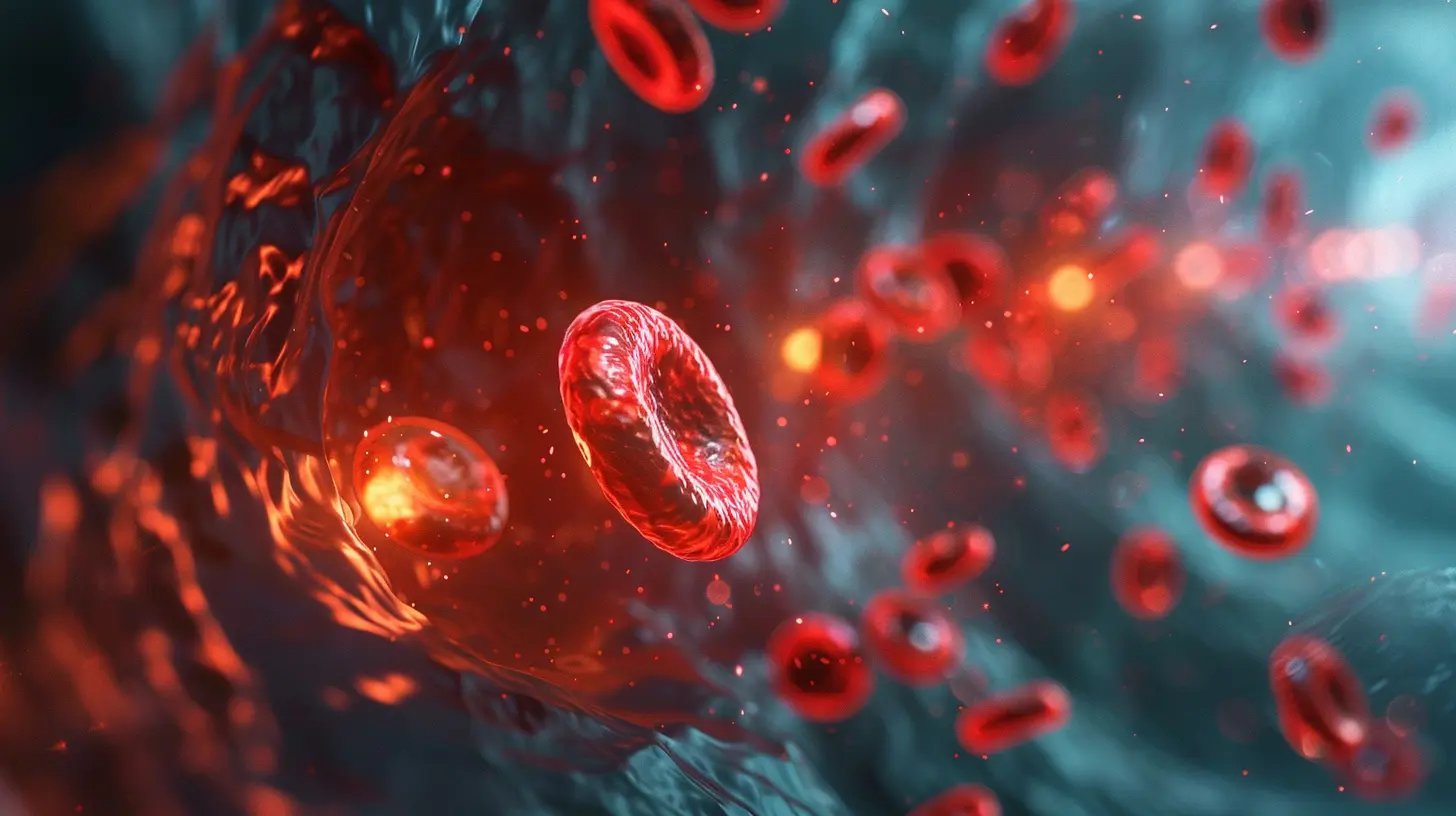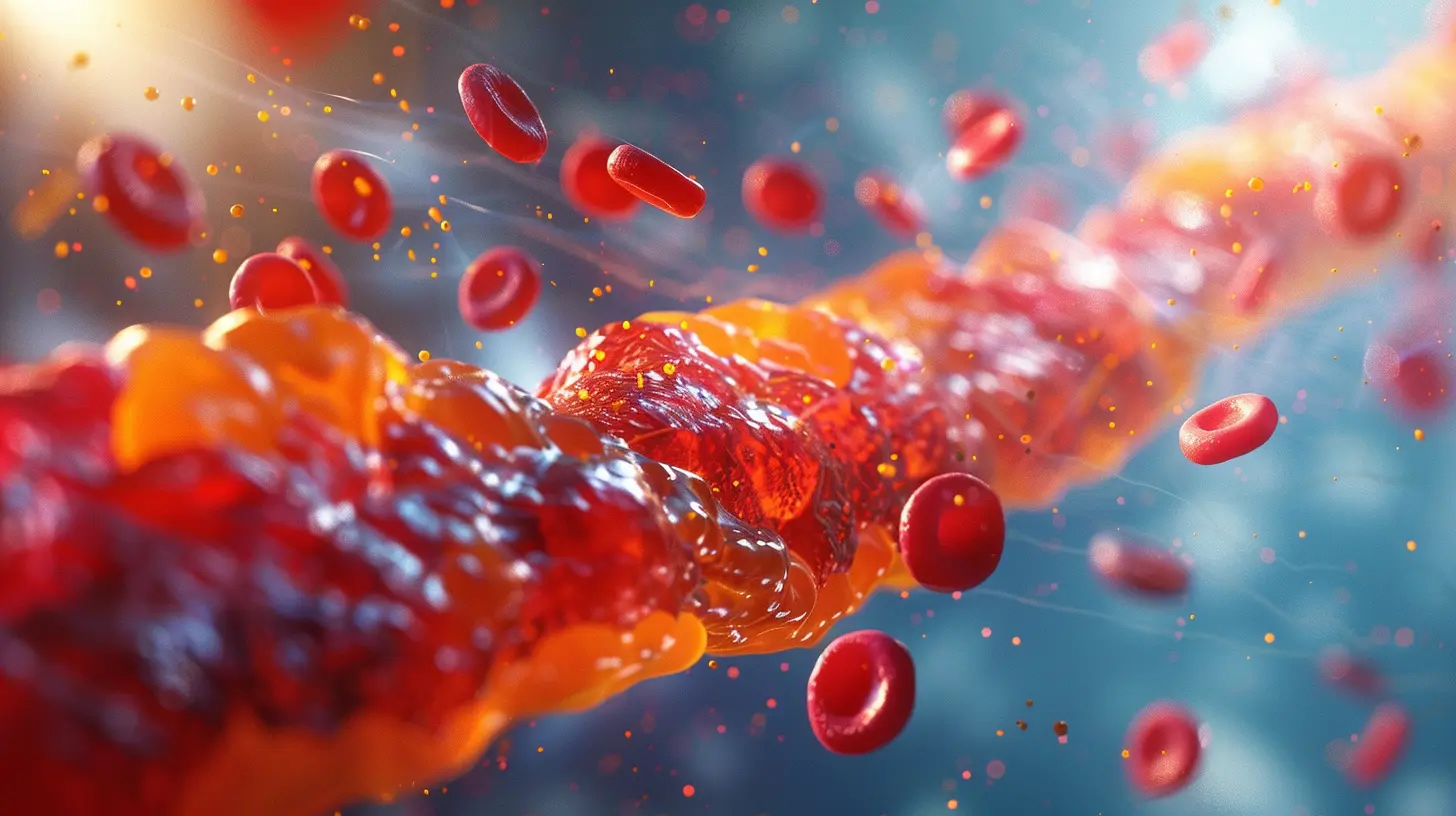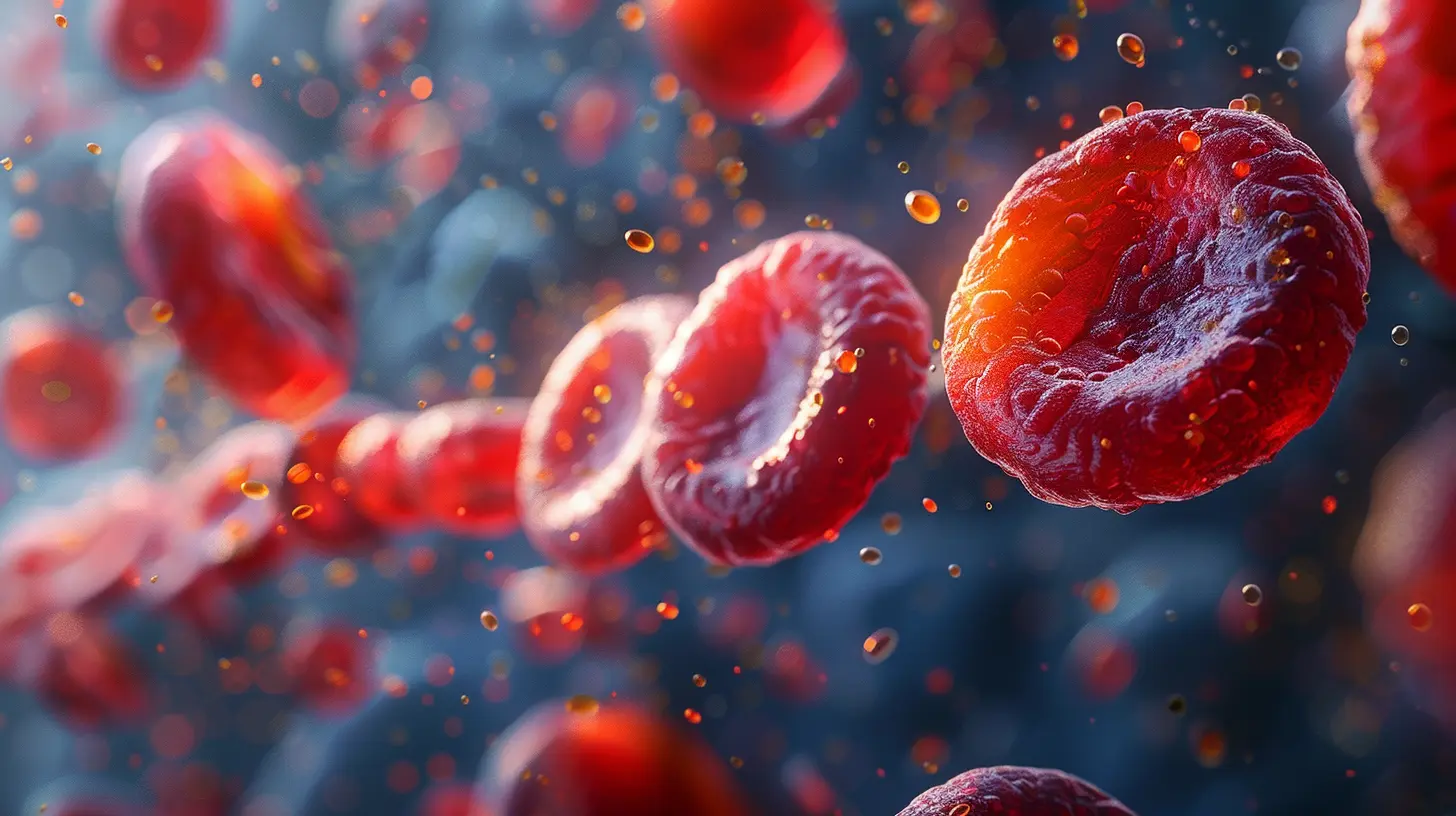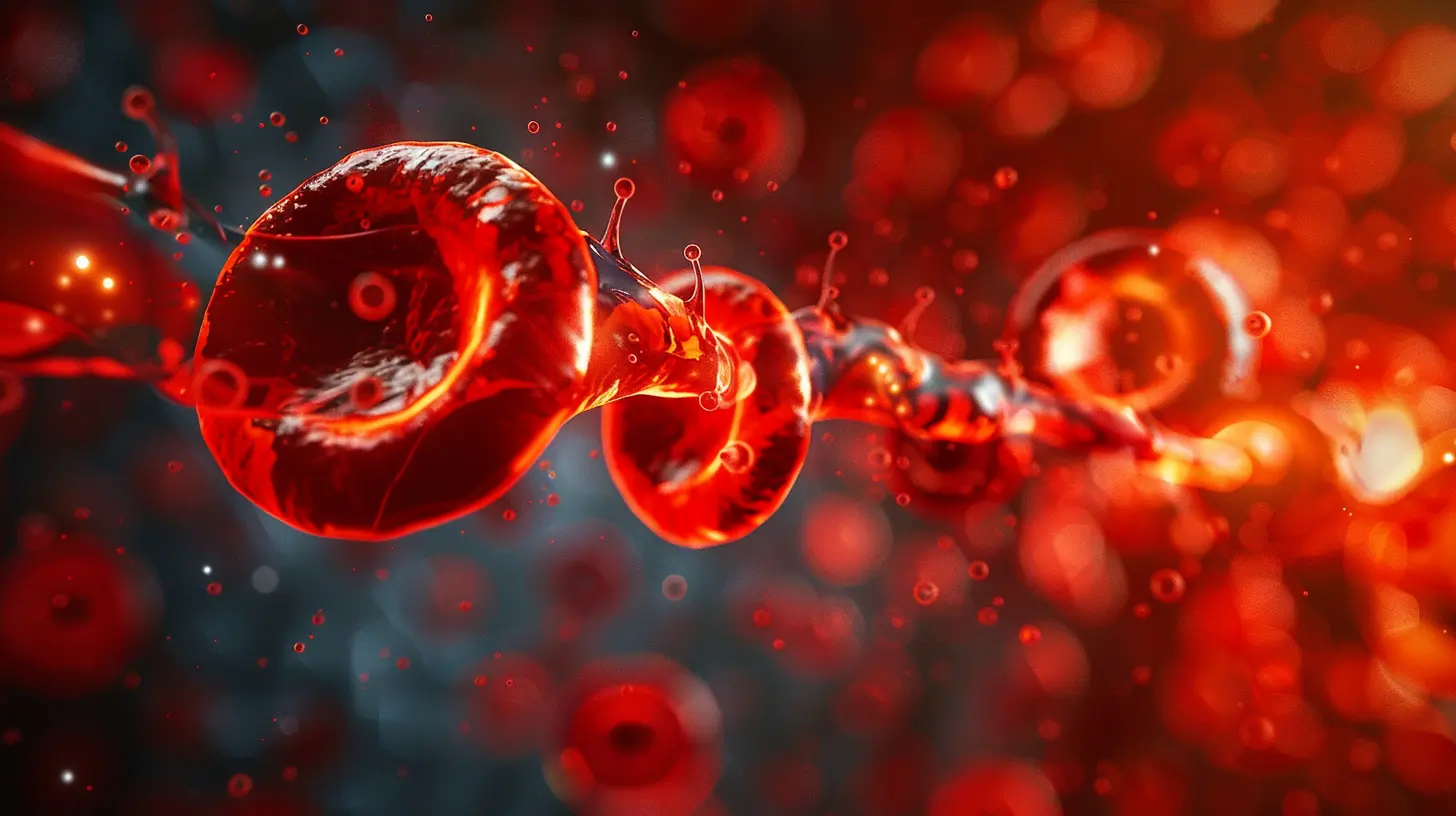Understanding Familial Hypercholesterolemia: A Genetic Condition
7 May 2025
Ever heard of cholesterol? Of course, you have. It’s that pesky little molecule that gets all the blame for heart attacks and strokes. But did you know that not all cholesterol troubles are caused by poor diet and couch-potato habits? Yep, some people are just born with a body that hoards cholesterol like a dragon sitting on a gold pile. That’s where Familial Hypercholesterolemia (FH) comes in!
So, buckle up, because we’re about to take a deep dive into a condition that’s hard to pronounce but important to understand—Familial Hypercholesterolemia. Don’t worry, I promise to keep things simple and sprinkle in some humor along the way! 
What Is Familial Hypercholesterolemia, Anyway?
Alright, let’s break this down in the easiest way possible. Familial Hypercholesterolemia (which we’ll just call FH because, honestly, who has time to say that whole thing repeatedly?) is a genetic condition that causes dangerously high cholesterol levels.The Inheritance Game: You Get High Cholesterol, and You Get High Cholesterol!
FH isn’t something you catch like the flu or pick up from eating one too many cheeseburgers. Nope, you inherit it from your family. It’s like getting your dad’s eyes, your mom’s laugh, and—unfortunately—cholesterol levels that skyrocket for no good reason.If one of your parents has FH, you’ve got a 50% chance of inheriting it. And if both parents have it? Well, buckle up, because that means you’ve got the supercharged version, which is way more severe. 
The Science: Why Does FH Happen?
Your body has a system in place to balance cholesterol levels. Normally, LDL receptors (think of them as little vacuum cleaners in your liver) suck up the extra "bad" cholesterol (LDL) from your blood and dispose of it properly.But in people with FH, these receptors are either faulty or missing. This means LDL cholesterol just roams around in the bloodstream like an unsupervised toddler, causing chaos. Over time, this excess cholesterol builds up in blood vessels and can lead to heart disease at an alarmingly young age. 
Symptoms: More Than Just Numbers on a Lab Report
FH is sneaky. Most people don’t even realize they have it until they experience major health issues. But there are some telltale signs:🚩 Signs You Might Have FH
- Sky-High LDL Cholesterol Levels – We’re talking numbers over 190 mg/dL in adults and 160 mg/dL in kids.- Early Heart Disease or Strokes – If you’re in your 30s or 40s and already dealing with heart issues, FH might be the culprit.
- Xanthomas – These are yellowish cholesterol-filled bumps that show up on elbows, knees, or even your Achilles tendon. Basically, your body starts decorating itself with cholesterol deposits. Lovely, right?
- Corneal Arcus – Ever seen a white or light gray ring around the iris of your eye? It’s not just a cool eye effect—it might be a cholesterol buildup.
If any of these sound familiar, it’s time to have a serious chat with your doctor. 
Why Should You Care?
Because FH is a silent killer, folks. If untreated, individuals with FH are at an absurdly high risk of developing heart attacks early in life—sometimes even before hitting 40! That’s way too young to be dealing with serious heart problems.And get this—1 in 250 people have FH, but 90% of them don’t even know it! This means millions of people are walking around with a ticking time bomb in their arteries without a clue.
Diagnosis: How to Know If You Have FH
Think you might have FH? The good news is that getting diagnosed is pretty straightforward.🏥 Testing for FH
- Blood Test: A simple lipid panel can check your cholesterol levels.- Genetic Testing: If doctors suspect FH, they might do a DNA test to look for specific gene mutations.
- Family Medical History: If your family tree is packed with heart attacks and high cholesterol, your doc will take that into account.
Diagnosis is crucial because once you know, you can take action to lower your risks!
Treatment: How to Keep FH in Check
Okay, so you’ve got FH. What now? The good news is that it’s manageable—but you’ll have to be proactive. Unlike regular old high cholesterol, FH doesn't always respond to a simple diet change. Here’s what works:💊 Medications
1. Statins: These are the go-to drugs for lowering LDL cholesterol. They work by slowing down your liver’s cholesterol production.2. Ezetimibe: This helps block cholesterol absorption in the intestines.
3. PCSK9 Inhibitors: A newer class of medications that supercharge LDL removal from the blood.
4. Lipid Apheresis: For severe cases, this treatment physically removes LDL cholesterol from your blood—kind of like dialysis for cholesterol.
🥗 Lifestyle Tweaks
Even though FH is genetic, lifestyle changes still help!- Eat Smart: Load up on fruits, veggies, whole grains, and healthy fats.
- Move Your Body: Exercise keeps your heart strong.
- Kick Bad Habits: If you smoke, quit. If you stress-eat fries, maybe reconsider.
Why Early Detection Is a Game-Changer
FH isn’t a death sentence—it’s a wake-up call. If caught early, people with FH can live long, healthy lives with the right treatment. The key is awareness and action.Don’t Wait Until It’s Too Late
- If high cholesterol runs in your family, get tested.- If you’re diagnosed with FH, tell your relatives—they might have it too.
- Work with your doctor to find the right treatment plan.
FH isn’t something you can ignore and hope it goes away—it’s persistent, like that one friend who never leaves your house after a party. But with the right approach, you can keep your cholesterol in check and your heart happy.
So, go on, be the hero of your own health story—your heart (and future self) will thank you.
all images in this post were generated using AI tools
Category:
CholesterolAuthor:

Sophia Wyatt
Discussion
rate this article
3 comments
Christopher Kirk
This article provides an insightful overview of familial hypercholesterolemia, highlighting its genetic basis and health implications. Understanding this condition is crucial for early diagnosis and management. Increased awareness can significantly improve outcomes for affected individuals and their families. Great read!
May 11, 2025 at 4:38 PM

Sophia Wyatt
Thank you for your thoughtful comment! I'm glad you found the article insightful and appreciate your emphasis on the importance of awareness and early management.
Berenice McWain
Great insights on Familial Hypercholesterolemia! This information is crucial for increased awareness and understanding.
May 8, 2025 at 4:31 PM

Sophia Wyatt
Thank you! I'm glad you found the insights valuable for raising awareness about Familial Hypercholesterolemia.
Nora Barker
Familial Hypercholesterolemia serves as a poignant reminder of our genetic inheritance, urging us to explore not just biological traits, but the profound implications of our family histories on health choices and future generations.
May 7, 2025 at 3:56 AM

Sophia Wyatt
Thank you for highlighting the importance of genetic inheritance in familial hypercholesterolemia. Understanding our family histories is essential for making informed health choices that can benefit future generations.



